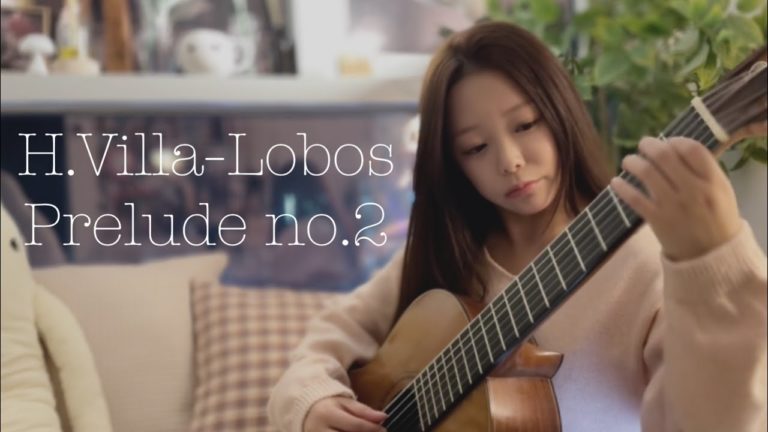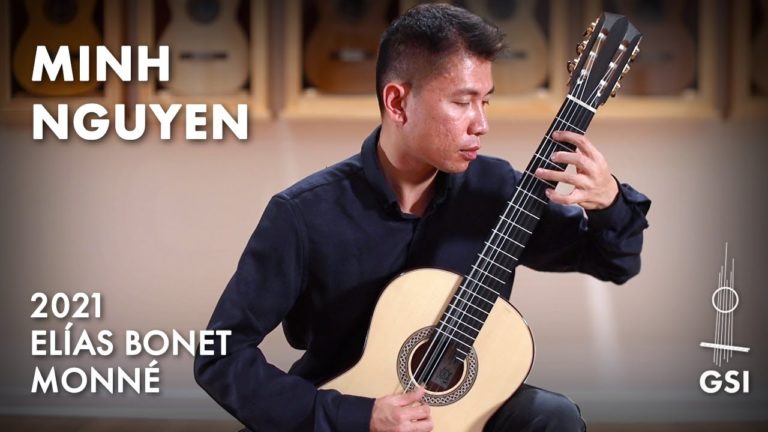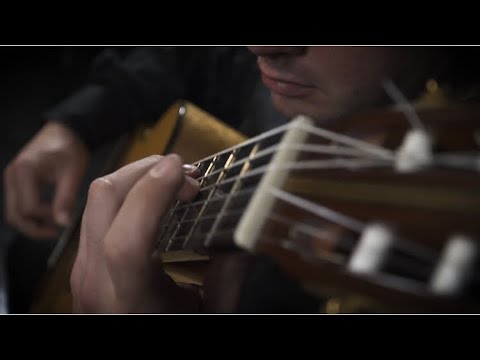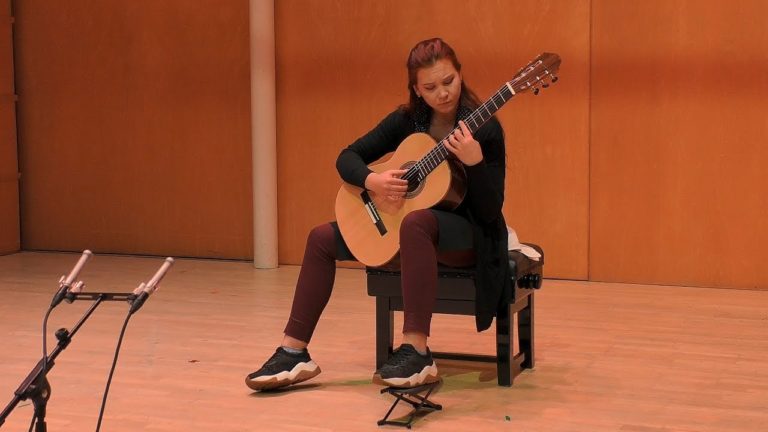One of my favorite guitarists, Kyuhee Park Plays Sonata in D major K.178 by Domenico Scarlatti (1685–1757). I love how clean and rhythmically she plays, and those crisp ornaments! Piece info via her Naxos Album:
Sonata in D major, K 178, a short but virtuosic work, has, after its short opening statement, several distinct textural sections, with energetic semiquavers, a short burst of melodic inventiveness over chords, and rapid arpeggio figurations, all of which are well suited idiomatically to the guitar.
Domenico Scarlatti (1685–1757), born in Naples, spent nearly thirty years of his professional life in the Iberian peninsula. In about 1719 he was appointed as mestre to the Portuguese royal chapel of John V. Among his many duties was responsibility for teaching Princess María Barbara. In 1729, when the princess married Prince Ferdinand, son of Philip V of Spain, Scarlatti moved with his pupil to the Spanish court. In 1738 Scarlatti’s fame was enhanced throughout Europe by the publication of thirty of his Essercizi for harpsichord, dedicated to John V, who forthwith appointed him as a Knight of the Order of Santiago. The Essercizi were not merely ‘exercises’ but expressive and brilliant sonatas in binary form that would constitute Scarlatti’s greatest legacy.
Scarlatti continued writing them for the rest of his life, ultimately completing a total of 555 such works, an extraordinary achievement. The great Scarlatti scholar Ralph Kirkpatrick saw him as ‘influenced not only by Spanish music but also by the guitar. Though Scarlatti probably never played the guitar…surely no composer ever fell more deeply under its spell’. It is therefore appropriate that the playing of Scarlatti’s sonatas is increasingly popular among guitarists. During recent years guitar arrangements of over 200 sonatas have been published.
The Scarlatti sonatas with the early Kirkpatrick numbers, K 1–K 30, were originally known under the title of Essercizi per gravicembalo, and their publication was supervised, unlike the others, by the composer himself. The harpsichordist Scott Ross described these as ‘the jewels of Scarlatti’s oeuvre’, and ‘certainly the most played’, with ‘a successful blend of classical tradition and Spanish folk song and dance in the collection’.




